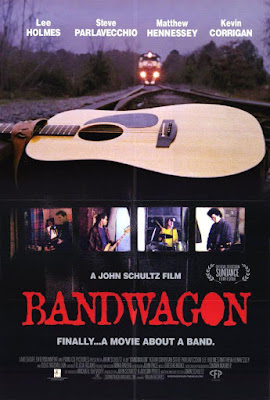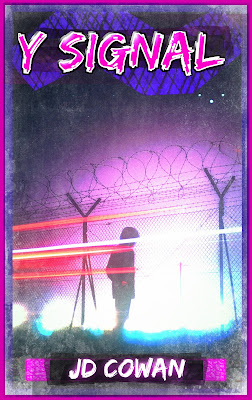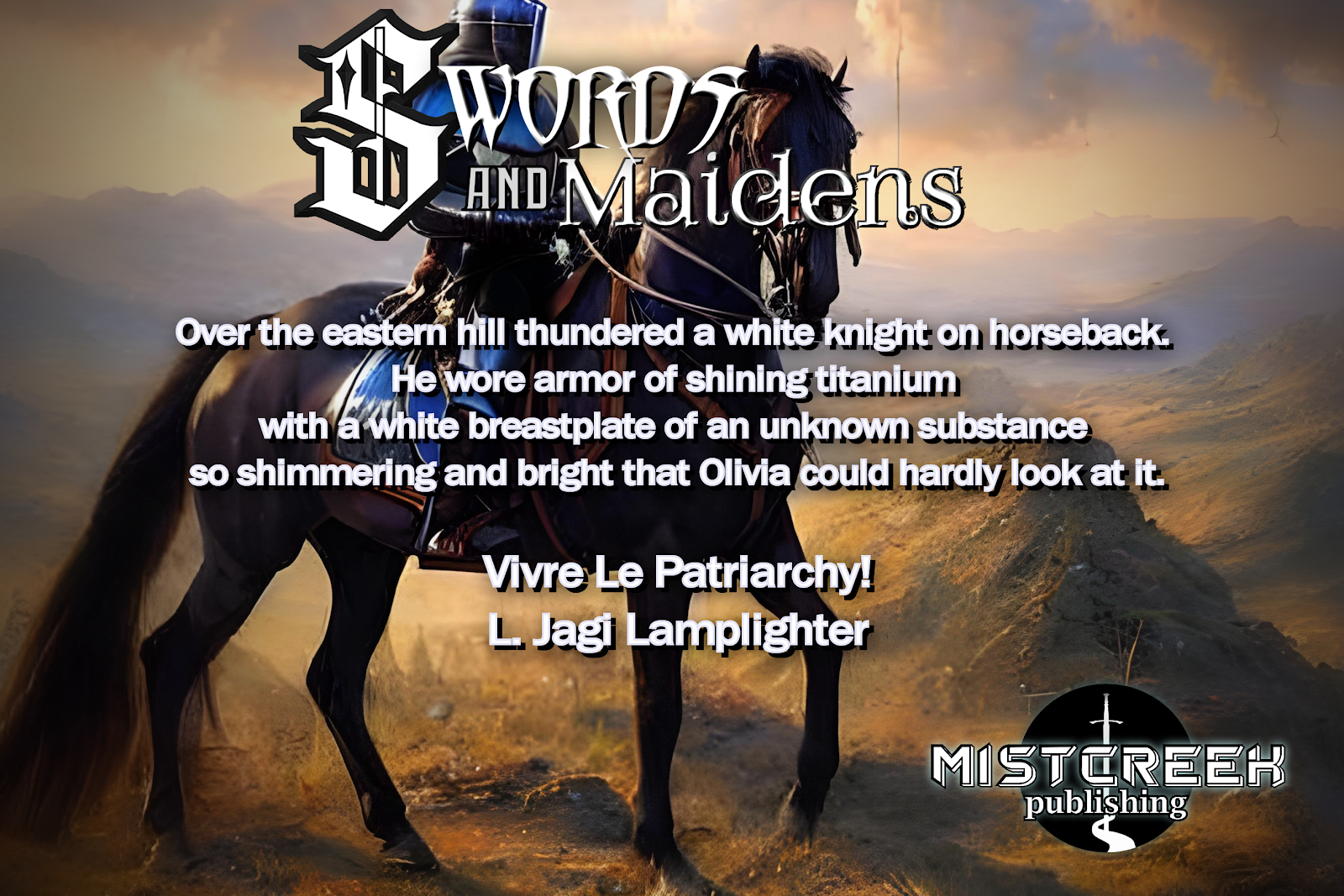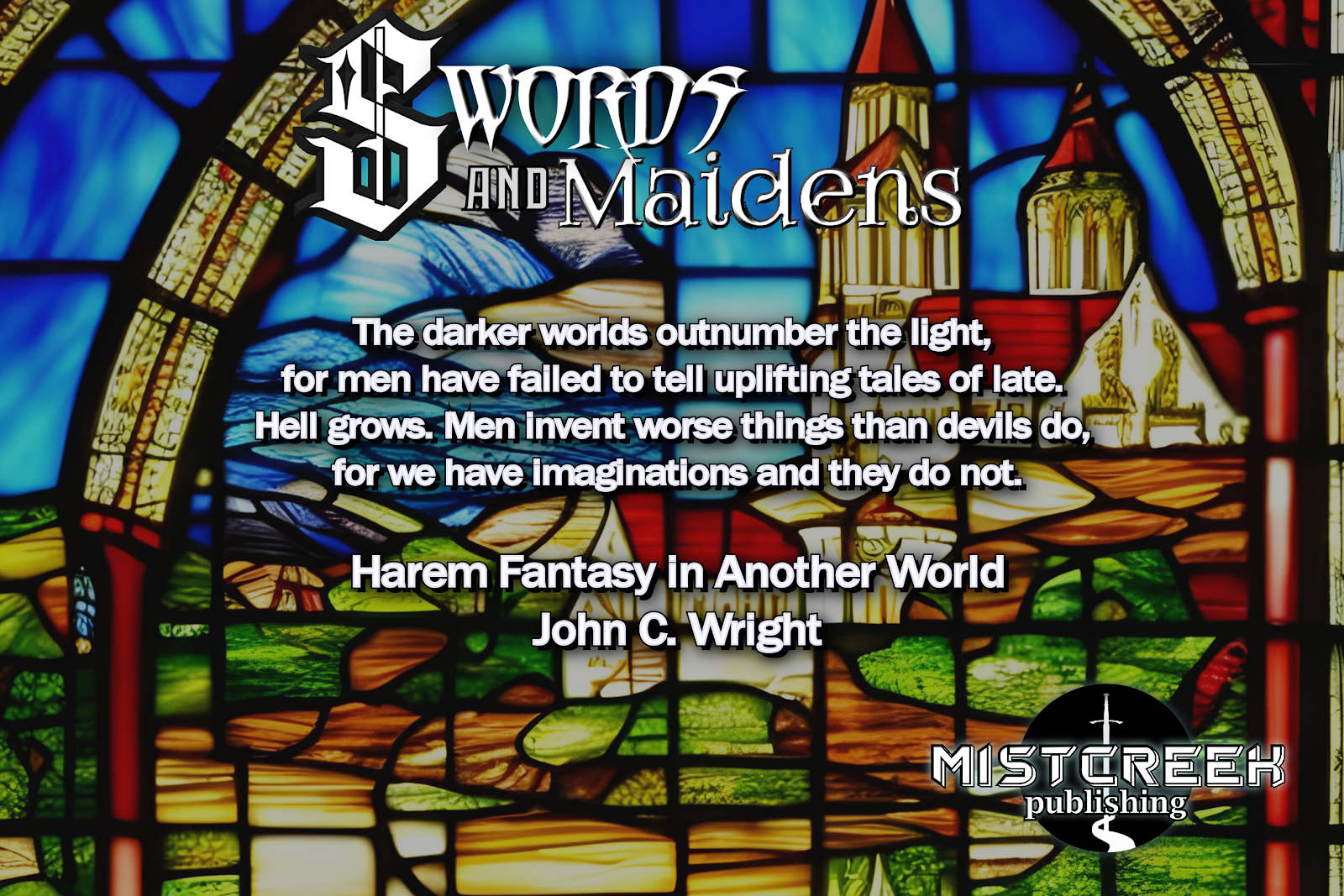Thanks to the dismal weather, I've had a lot of time to think, to ponder at what exactly has led us to this modernity pit of materialism and alienation we are still trying to claw out of. It's been so long it's almost hard to believe there was a time when things were actually different. Well, it was! What are we missing today that we once had? Well, we've covered all the big things many times. At this point, you know everything the mainstream peddles to you is harmful, so what is it that we need instead? What can we have instead? We can have what have we forgotten.
I've spent some of my time looking into the catacombs of archive.org, revisiting old, forgotten properties and products, lost to the slick typhoon of modern merchandising cynicism, and trying to ascertain what they had that hasn't been revisited in either subversions or their haphazard revivals. I believe I have found it, though it will take some time to explain. The answer appears to be simpler than it is to describe.
We are missing comfort, plain and simple. There is precious little today that contains anything in the way of soothing the audience's mind and reassuring them of a normality that puts them at ease with the natural order, their neighbors, and the idea that their lives have value beyond novelty. We have taken simplicity and warmth for granted, and precious little today contains any of it. Yes, even in the indie, underground, and NewPub spaces. Though I suspect that won't be the case much longer, because I have been getting the feeling that attitudes are beginning to shift on the subject. The desire to connect, to feel like one has value, has been only increasing in recent times.
What is strange about the concept of comfort in entertainment is how simplistic and obvious it is when you see it firsthand, but how abnormally hard it is to contain it in a society poisoned by cynicism, mistrust, and abandonment, and is constantly told how silly faith is. It is really a case of "knowing it when you see it" probably in it's purest form. How do you beat embedded cynicism? How do you reassure people who have been misled by the people who are supposed to by leading them? How can you give comfort for those taught to mistrust?
This is going to be a long road to travel, but I feel people are slowly coming around to the realization of what is coming for themselves. This is not sustainable. The question is if we even remember what comfort is in the first place because, despite what you might feel based on funny memes you see online or in your social media groups, precious few people today actually know what comfort is anymore. It isn't about wrapping yourself in a blanket and sitting in an easy chair.
And this is the crux of the issue.
One of the things that has warped the perception of entertainment to the common man is the loss of comfort in the western world. Now, you might be questioning how that is possible. Surely people are lazier than ever, and seek to do less work than their predecessors. Isn't the problem that they have too much comfort? Surely they don't need more comforts.
There might be truth in that on some level, but one of the major reasons for this attitude taking over is the overwhelming rise of depression and anxiety in modern life brought upon by the alienation and isolation we champion above familial and fraternal bonds. They get comfort from precious few places as it is. No one can relate to each other, therefore they can't trust each other, and eventually they look for excuses to be alone more often than not. Being forced to job hop and both family and friend constantly made to end relationships, as if life is a carnival, as if it is normal to constantly socially cleanse yourself, has done untold damage to the average modern person's psyche. No man is an island, yet we live like we are. Zipper blues was an evil thing to subject kids to. It still is. And yet we can't imagine a world where it doesn't exist, despite the fact there is no other era in existence aside from the last century when it existed.
You are expected to see every piece of media as either subversive, mindless froth, or a think piece. there is nothing else moderns allow as a possibility. None of those three descriptors are needed to make art, but also, none of them are capable of creating comfort. They are all designed to force the audience to engage the media in the way the creator decides, and without any subtlety or nuance otherwise. They are not made to let the audience to settle in and just enjoy the proceedings. This is the biggest difference with how art is made now, and why the mainstream has hemorrhaged patrons so badly for decades. In these uncertain times, people want certainty.
Comfort emphasizes certainty, predictability as a positive, and stability. There is no mainstream entertainment that does this. In fact, there is plenty that treats all three as evil, usually while striving to unsettle and disturb the audience instead of connecting with them.
And I am beginning to believe that comfort is what audiences actually want now. The age of edge, subversion, and political preening, is over.
Some of the things I have been delving into since the calendar changed to 2023 include old sitcoms, adventure shows and comics, and classic video games. The reason for this is that I wanted to see what older products had that we are missing today to really make the connection to modern audiences. Aside from aesthetics or themes, what did these things have that the mainstream cannot deliver now? The thing they had was an assumption that cultural unity and shared values are admirable, and anti-social cynicism and bitterness are harmful to cohesiveness. Without that connection, we are destined . . . well, we are destined to the world we have right now.
I can give a few examples, but keep in mind they are only a few. And I believe the only modern industry (in its independent/NewPub-esque form) that is truly nailing what made the classics work, is the video game industry's middle market and indie spaces. Others, like comics and books, have problems beside the constant backbiting over nothing.
But what is this comfort of which I am speaking? It is time to get on with it.
Let us take a series like The Littlest Hobo, the 1970s version, supposedly the decade of nihilism. For those unaware, this series follows a stray dog as he goes from town to town, and across the countryside, looking for people to help. The premise is simple, and obvious. The unnamed canine protagonist comes across humans that need help, he solves the problem, then goes off looking for new adventures. It's very formulaic, but it's a good one, and instils a sense of comfort in the viewer with its cheesy humor, catchy music, and bright visuals. There is no social conditioning, subversive political sloganeering, or contempt for the audience. It is a simple series with a simple premise. Instead of trying to make audiences "turn their brain off" or "think" or whatever the people behind the show they think they should be able to force their audience to do. No, the Littlest Hobo's main concern is comforting the audience with a simple plot, a straightforward idea, and no extreme content.
If you think this is a bad thing to have ambitions towards, then you clearly have been taken for a ride by those in charge. There is nothing wrong with a piece of art whose main purpose is to comfort and offer straightforward thrills. The question is if it does so convincingly. This series does.
For another example, I also recently partook in watching the 1970s version of The Hardy Boys / Nancy Drew Mysteries, the series where one week it would center on one party or the other, or both together in one episode. This was made for a family audience, though it made sure not to dumb down the mystery element. All-ages stories used to be able to appeal to All Ages.
One of the episodes I viewed concerned Nancy disappearing and the Hardy Boys having to investigate what happened (with the local law enforcement!) leading to a chain of events involving an exploding building, an eccentric millionaire hiding away in his tower, and daring escapes from criminals. Despite all of that, there was no graphic violence or edgy behavior. Nothing extreme. The threat was real, but never did it ratchet tension or raise the stakes to levels that would unnerve audiences or the younger set. Instead, it ended by putting a new bow on the proceedings and everything working out despite all that had occurred.
Remember the old joke making fun of old crime shows ending on a lighthearted moment or a joke? Well, there is a reason they did that. I know we are told all people before us never had a reason for anything they did, but they did. They did this because they knew the main goal was to please the audience and leave them smiling as they headed to bed. Good triumphing over evil and succeeding fully is a good state to fall asleep to. Your sleep and rest is affected by the last thing you consume. This is why old TV did this.
Ask yourself why it is now the complete opposite of this, and why all the people who engage in this programming have high anxiety and depression. The answer is clear.
The perfect sort of thing that audiences should be going to bed on is not something that distressed them or leaves them uncertain. It's no coincidence that bad sleeping habits, anxiety, and depression, are so high given what subversive programs streaming services pump into people's brains. There is a reason old crime shows used to end on a lighthearted moment and with everything wrapping up with the villain defeated. Now they don't, and haven't for decades, and most audiences have fled in response. We live in an anti-audience entertainment climate.
There is probably something to the way things were once done.
What I meant about video games applies here. I recently indulged in the game Fashion Police Squad, a first person shooter (Get it? FPS?) where you play as a fashion cop shooting fashion criminals with your clothing guns based on what their "crime" is. It's an outlandish and silly premise, but the gameplay is fun and the level design is varied enough to keep it interesting until the end. It's not the biggest or most original game ever made, nor does it contain a "deep" story, but it is a much better time than any AAA game will be. It's also considerably cheaper. There is a reason games like this are becoming more and more in demand while no one talks about Halo or Call of Duty anymore. Fashion Police Squad is the exact sort of tension reliever and breezy simplicity that people used to expect from your average video game. Not cinematics, $70 prices, endless DLC, big budget HD junk, or rehashed 2006 gameplay: just pure concentrated comfort and enjoyment.
This is where the video game industry actually is far beyond everyone else when it comes to the NewPub and indie style spaces. They get the idea of comfort as a key component of entertainment. With everyone else's focus on '90s Xtreme edginess or '00s gore and sex, we haven't quite reached that point in adjacent subcultures. Considering those aspects of said decades are what lead us here to this modern climate, they aren't really a sense of comfort to the majority of audiences outside of momentary nostalgia. Hence why those things have never really taken off, even in a climate currently obsessed with nostalgia.
To beat the old industry, you need to give people what said old industry is not giving them. That requires more than rolling the clock back. It requires a mindset shift.
My point is not that all art and entertainment needs to instill comfort on the surface, but I'm quickly reaching the point where I believe the majority of it should, on some level. It needs to reinforce the good and reject the evil. We are clearly seeing the results of an industry without any comfort to be had. It's not working.
For one last example, take the hit series, The A-Team. This was a series that got ratings comparable with pre-rural purge era works, and was constantly dogged as being mindless violence and junk food for the brain when it came out. Nonetheless, it contained stunts like anyone might expect from the golden age of action movies, but not the level of violence. It did this for multiple reasons, including Standards and Practices, but also because it was like a modern twist on tokusatsu: an action series for the whole family with a comedic bent. It is for all ages, the whole family. The team gets into a situation, devises a crazy plan to get out of it, the problem is solved, and the heroes go home winners. This is something the whole family can understand, and each one for different reasons, and it is why they watched it together. That is what entertainment exists to do.
Afterwards, when the sizzling action and excitement has passed, you then go to bed with your spirits raised and a smile on your face, and tomorrow you will talk all about it in the school yard / at the water cooler. In the end, everyone wins. This is what pro-social entertainment should inspire--connection. This is what it once did.
Sitcoms used to epitomize this idea in the west. Essentially a weekly stage play filmed in front of an audience (laugh tracks are an aberration of this original form), the show unfurls a situation played for comical effect that the majority of the audience can understand based on common everyday life. Eventually it hits a climax, the problem is put right, the family remembers it is a family and forgives each other, and things are put right. It is a very simple formula.
All the more why it was the target of derision and subversion by cynics and anti-social types since the dawn of television. Sitcoms have always been looked down on by the wider industry, and eventually they were completely subverted from their original aim.
They ruined them in a few steps. First, removing the stage play format and audience participation makes sitcoms more detached from their roots, "maturing" the writing cuts out family participation, and uprooting it from any sort of moral framework makes it pointless noise for hipsters to pat their own backs over. There is no relation to the audience or reality anymore. There is no connection with others anymore. But at least the writing is "smart" or whatever, even though that was never the point of sitcoms in the first place.
We completely lost the plot on what comfort is, because we no longer wish to connect with one another. We don't want to spend time with each other, whether in a fantastical world or the normal one. We wish to be put above our neighbor, not live beside them.
Japan does seem to understand the concept of comfort better than the west, to an extent. There is a reason shonen action series, moe and romance series, and tokusatsu, continue to be popular despite constant complaints of predictability from those who do not care for them. They know what their audience wants, deep down, is to have that connection in their entertainment. Comfort is a trait we take for granted, to our tremendous disadvantage. We can currently see what a society without comfort looks like.
It's not pretty.
But what about a society where there is comfort? That is something we can very easily imagine, because it wasn't around that long ago.
So how can we right the ship? Is there any hope, or are we destined to spin down this drain forever until the death of the universe?
First, we can see where we went wrong. It's fairly obvious. Everyone can see it, even if they don't want to admit it.
One of the industries that completely miss this aspect of comfort, especially in the mainstream, is comic books. With how the manga industry has completely dominated the west, including in paperback book sales, this isn't arguable anymore. Japan has completely crushed the western publishing industry and it isn't even close.
So how did comic books fall out of fashion? Where did it go wrong? Fairly easily: they stopped caring about growing the industry or catering to anyone but themselves and their own fetishes above the audience's tastes. And they did it way back in the 1970s and 80s. There is a reason sales only dropped as the years went on.
From all reports, the Gen X radicals that came into the industry back in the day had no interest in creating stories for all-ages or kids. In fact, they only wanted to create stuff for their very mature selves. You can see this with how mainstream superhero comics got more and more violent and lurid while at the same time kids started flooding out of the hobby.
This doesn't even go into how locking the entire medium into specialty stores (something Japan does not do, by the way) effectively cut off any entry point for new readers to come in or the industry to grow. Eventually we got to the point where everything is produced and made for a subset of New York hipsters that have no interest in understanding others outside of their tiny social circle and look down on who they deem lesser than they are. As a result, the industry is dying.
The answer to preserving the form is not to preserve the decline that occurred in the 1970s before bottoming out in the 2010s. That's a long fall! Therefore, imitating a stage of said fall is not going to bring audiences back. This doesn't mean you can't aspire to have good art styles inspired by works back then, but imitating those subversive storytelling tropes didn't bring audiences in back then. Why would it do so now? A different tact is needed.
True all-ages comics are what is needed again. Not necessarily kids comics (though those are needed, too!) but series with a more broad appeal outside of tiny slivers of shrinking demographics, especially as demographics are no longer the same as they once were. All-ages is the bedrock of any entertainment industry in getting mass appeal, bringing in audiences, and connecting people. they are necessary for industries to grow. This is why manga and bande designee are growing, while western comics are a punchline.
Think of some of the highest selling international comics: Tintin, Donald Duck/Scrooge, Valerian, The Phantom, classic Fantastic Four, Asterix, Bone, Captain Marvel (Shazam!), or even old Archie. This doesn't even go into more independent fair like Usagi Yojimbo or Teenage Mutant Ninja Turtles. These all have only one thing in common, and that is to tell an accessible story that anyone can get into without being jarred out of it by extreme content. This is what draws wider audiences in. More in the vein of the A-Team, less in the vein of the decline. The opposite would be focusing on ideas limited in scope and centered on characters the majority audience cannot connect with (or are specifically designed not to connect with) while insulting your customer base. Guess what exactly the western industry does.
As far as the literary world goes, there are plenty of examples in PulpRev and Superversive circles where comfort exists, but as for comics? I don't think we're quite there yet. You can find examples, such as
Flying Sparks or Kamen America, and there are others in the web sphere such as
Jane Smith: Wannabe Gladiator or
Cloudscratcher, but we need more. The scene needs a sea change, and this is the direction that will eventually give it the shot in the arm it needs to grow again.
So it is with every art scene. The future is really going to be in comfort, wholesomeness, and wonder, first. We are already gearing up for a kickback to the poison of modern culture, especially as more nihilistic and darker stories and properties are currently dying out due to the audience dealing with enough of it in their own lives with the real world going mad. Mindless nostalgia of subverted properties made back when things were better is not working, and it offers no solutions. It is that subversion, that very poison, that is being rejected. It isn't that audiences want old things, they want new things with that old spirit.
The only way to get that is to change the way we operate and reassess our creation process. Not just what stories are we telling, but how do we actually want to connect with the audience? What are we getting across? What sensations do we want to instill them with?
This isn't so much a call to sanitize works already being made, but to rethink the aim of the works we create from the ground up. Who will be reading them, and what will they get out of it? Because every bit of a piece matters, and it all contributes to the greater whole. You can't create unreality and warp normality with art, unlike what common advice tells you today, but you can either pervert it or champion the good instead. We've seen what a constant onslaught of perverse art can do. I honestly do not think audiences are looking for it anymore, not to mention that there is already a surplus of it. Why contribute to it further?
2023 hasn't been a great year so far, but there are definitely bright spots ahead, cracks in clouds. If you can put your faith in a brighter sun on the other side then you will eventually see it. It might take longer than we'd like, but it will happen.
Let's just make sure not to wait for it to arrive before we make a change. It would be better to meet it ready to go instead of scrambling to keep up.
You can't know the future, but you can know the past. There are always ups and downs, sunrises and sunsets, and tribulations and peace, but there is always a tomorrow. There is always another chance to get it right. And we'll get this one right, mark my words.
Comfort and joy are what gives the world its beauty. Without it we'd be trapped in a misery and darkness so deep we would never crawl out. But we will. We always do, eventually. Let's be sure to work for it. It'll make that comfort all the more sweeter when we get it.




































